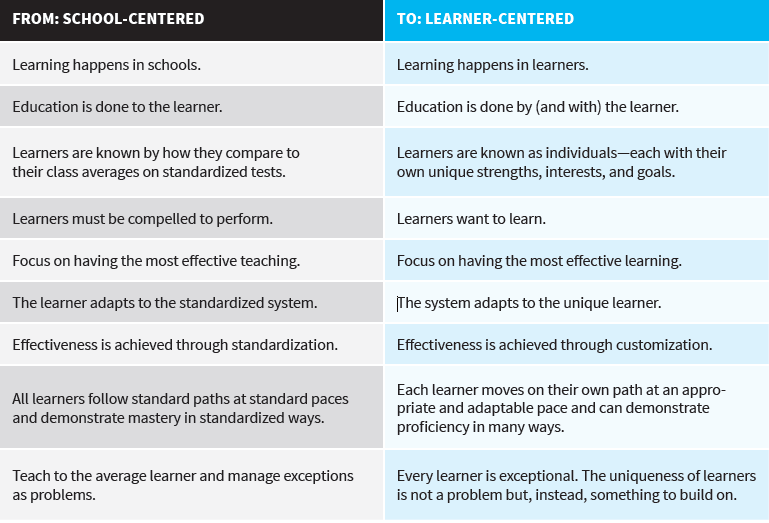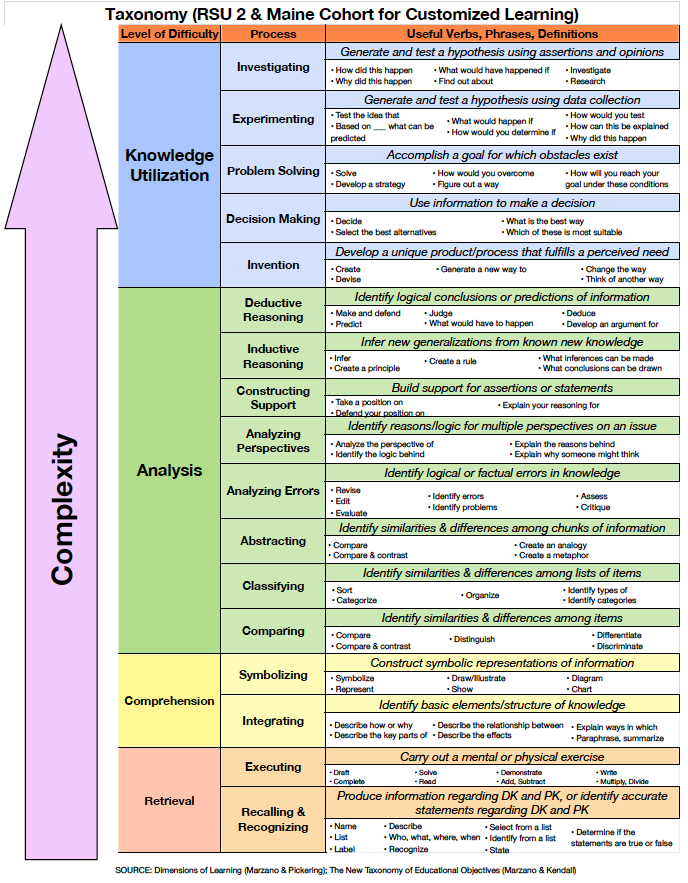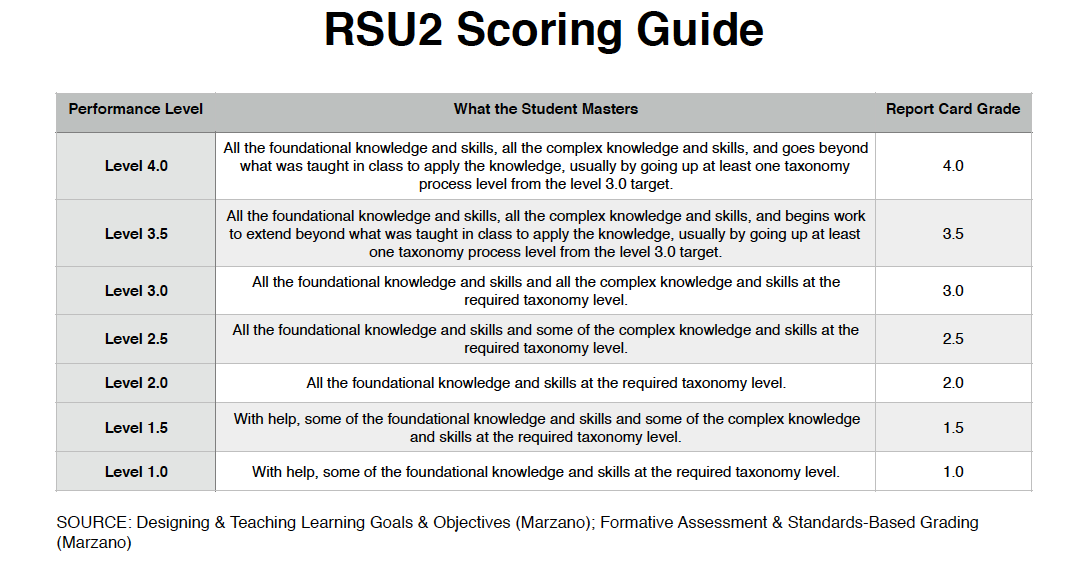ABOUT KIDS AND OUR MISSION
Inspiring Minds | Shaping Futures | Kids First
KIDS (RSU 2) includes the communities of Dresden, Farmingdale, Hallowell, and Monmouth.
Vision - The vision of Kennebec Intra-District Schools (KIDS) is to provide a nurturing and inclusive environment where every learner is empowered with diverse and equitable opportunities. We are dedicated to offering a challenging and relevant curriculum that deeply connects with the lives of our students, preparing them for a successful future.
Mission - To provide an innovative, exemplary education that propels each individual to reach their greatest potential.
Some frequently asked questions are below.
1. What is proficiency-based education?
KIDS defines proficiency has “having sufficient knowledge or skills for some purpose”. This definition fits at every level, from kindergarten through graduation, and all targets have a purpose embedded within them.
Proficiency-based education is based on a clear assumption that schooling should be focused on the learners. It is the difference between being school-centric and learner-centric. KIDS is committed to a learner-centered model of education.
In a school-centered paradigm, the assumption is that education happens in a school. So, when we improve the school, we improve education. The basic question from a school-centered perspective is: What will make this school more efficient and effective in the task of schooling our young people? Follow-up questions include: How should a school be organized? How do we ensure this school is meeting its goals? How come some schools do better than others? In a school-centered paradigm, the school is placed at the center of our thinking, without considering any alternative.
By contrast, in a learner-centered paradigm, the unique learner is placed at the center. When you put the learner at the center of every decision, you are in a different world. The basic question from a learner-centered perspective is: Who is this learner, and what will support each learner in the task of their learning? Follow-up questions include: How do we ensure that each learner can meet their goals? How do we create a system that allows each particular learner to learn in the way they learn best? How come some learners are moving at a different pace than others? Does this system allow each learner to learn at an appropriate pace for them at each point along their journey? Are learners able to group and re-group, so they are appropriately challenged and engaged?

(image and some text credit: Education Reimagined)
2. How does KIDS support proficiency-based learning in the schools?
KIDS has ten schools across five towns, and each school is slightly different in how it approaches the district mission. However, every school incorporates the districts' Five Tenets of Learning.
What are “measurement topics” and “learning targets”?
KIDS has a system of measurement topics and learning targets based on the research of Dr. Robert Marzano, a leading educational researcher. A measurement topic is a general topic, such as Reading: Informational Text: Supporting Thinking With Evidence; Algebra: Interpreting Functions; Creating: Plan & Make; or Life Science: Biodiversity and Evolution. These measurement topics are then broken down into specific learning targets, such as “understands why some organisms that once lived on Earth have completely disappeared”; “is skilled at performing music, alone or with others, with expression and technical accuracy, and appropriate interpretation”; or “understands how government policy and taxation impact the economy”.
What about levels of rigor for my children?
Every learning target in our progression has a level of rigor attached and is broken down even further. The examples given above in question four are our 3.0-level targets.
All targets are broken down into two levels: 2.0 is considered the foundational knowledge and/or skills for a target, while 3.0 is considered the complex knowledge and/or skills for a target, and is required of all targets for proficiency.
Every target also has a level of rigor attached to it, so the expectations for the learners are upfront and transparent. KIDS uses a hierarchical taxonomy as shown below. We believe that making the learning transparent and the expectations clear meets one of our five tenets above (specifically, tenet two: clear targets in a good progression).

How do my children earn grades?
In KIDS, it’s not about the grades - it’s about gathering evidence to provide feedback towards learning targets, and moving on to the next target in the progression when there is a preponderance of evidence at the proficient level. As mentioned above, the targets are broken into foundational and complex levels. The generic scoring guide is below.

What does “applied and not simply tested” mean?
KIDS believes education has moved on from the way most of us grew up; that is, the industrial age of schooling has ended. Sorting kids into different tracks, making it difficult to get out of those pre-determined tracks, putting kids into paths such as “college-bound”, “general”, “remedial”, “technical”, etc - that’s not the way it works in the 21st century. We need to prepare kids for anything that comes after they graduate from one of our schools.
In that case, we need to assess learning in different ways. It’s not just about paper and pencil tests anymore - there are multiple opportunities for learners to show evidence of learning at all levels. Those can be via presentations, multimedia reports, collaborative work with peers and teachers, and yes, paper-pencil tests. Any way learners can show evidence is okay by us.
Why does KIDS have the "Math Flow"?
In KIDS, we believe that learners best flow through the curriculum when they are appropriately challenged when they are ready for the next step (see question 7). We also believe that these challenges do not align with traditional grade levels, and thus the Math Flow was born.
KIDS teachers, over two years and in consultation with coaches, developed the Math Flow, a sequencing of targets and collection of resources, that appropriately reflect the order kids learn. Each level of the Math Flow has been designed to build on each other, so all prerequisite material a learner would need to know in order to work on a level would be taught in a prior level. Level six flows into level seven, which flows into level eight, etc, etc.
There are twenty-five levels of the math flow prior to the targets identified as high school targets, which will show on the transcript regardless of when a learner reaches proficiency on those targets. Benchmarks are being developed for parents to see whereabouts their learners are in relation to their social grade level.
Will my kids be accepted to college? How does that all work with this system?
Rest assured, your kids will get into college. KIDS has been working with this system since 2012, and our kids in all our communities are getting into colleges, usually their first choice.
Our transcript is a traditional-looking one, and our guidance counselors and career/college counselors work with the colleges your child applies to in order to get them the best possible information about your child, speaking to the colleges individually if necessary. Our learners have been accepted to schools from across the country (a partial list is below), and our system is not a hindrance nor a negative for your child.
American Institute of Applied Arts
Anna Maria College
Arkansas Tech
Baker University
Bates College
Becker College
Beloit College
Berklee College of Music
Black Hills State College
Boston College
Boston University
Bowdoin College
Brandeis University
Breyer College
Bridgewater State University
Brigham Young University
Bryant University
Bunker Hill Community College
Cabrini College
Carnegie Mellon University
Castleton University
Campbell University
Cedarville University
Central Maine Community College
Central Maine School of Massage
Champlain College
Colby College
Colby Sawyer
Colgate University
College of the Atlantic
College of the Holy Cross
College of Staten Island
Colorado College
Columbia College of Art
Connecticut Culinary Institute
Cornell University
Connecticut College
Dartmouth College
Drexel University
Eastern Maine Community College
Eastern Nazarene College
Elmira College
Embry Riddle Aeronautical University
Emmanuel College
Emerson College
Franklin Pierce University
Friends University
Full Sail University
Genesee Community College
Gordon College
Goucher College
Graceland University
Havard University
Hellenic College
Hofstra University
Husson University
Indiana University of Pennsylvania
Ithaca College
Johnson and Wales University
Kalamazoo College
Keene State College
Kennebec Valley Community College
Keuka College
Lake Region Community College
Lasell University
Lesley University
LIM College;
Lincoln Culinary College
Lyndon State College
Maine Maritime Academy
Maine College of Art
Massachusetts Institute of Technology
Massachusetts Maritime Academy
Merrimack College
Mid-Atlantic Christian College
Middlebury College
Mount Holyoke College
Mount Ida College
New Brunswick Bible College
New England Culinary Institute
New England School of Metalworks
New Hampshire Technical College
New Jersey Institute of Technology
New York University
Norfolk University
Northeastern University
Northern Maine Community College
Norwich University
Notre Dame University
Old Dominion University
Pace University
Paul Smith’s College
Pensacola Christian University
Plymouth State University
Quest University Canada
Quinnipiac College
Rhode Island School of Design
Roanoke College
Roberts Wesleyan College
Rochester Institute of Technology
Roger Williams University
Salem State University
Salve Regina University
Savannah College of Art and Design
Seton Hall University
Simmons College
Slippery Rock University
Smith College
Southern Maine Community College
Southern New Hampshire University
Springfield College
St Anselm College; St John's University
St Joseph’s College
Stonehill College
Suffolk University
Susquehanna University
Syracuse University
Thomas College
US Air Force Academy
US Coast Guard Academy
Unity College
Universal Technical Institute
University of Maine
University of Maine at Augusta
University of Maine at Farmington
University of Maine at Fort Kent
University of Maine at Machias
University of Maine at Presque Isle
University of Massachusetts at Amherst
University of New England
University of New Hampshire
University of Pennsylvania
University of Southern Maine
University of Vermont
University of Western Alabama
Washington County Community College
Washington State University
Wentworth Institute of Technology
West Point Prep
Western New England University
Wheaton College
Wheelock College
Williams College
Worcester Polytechnic Institute
Yale University
